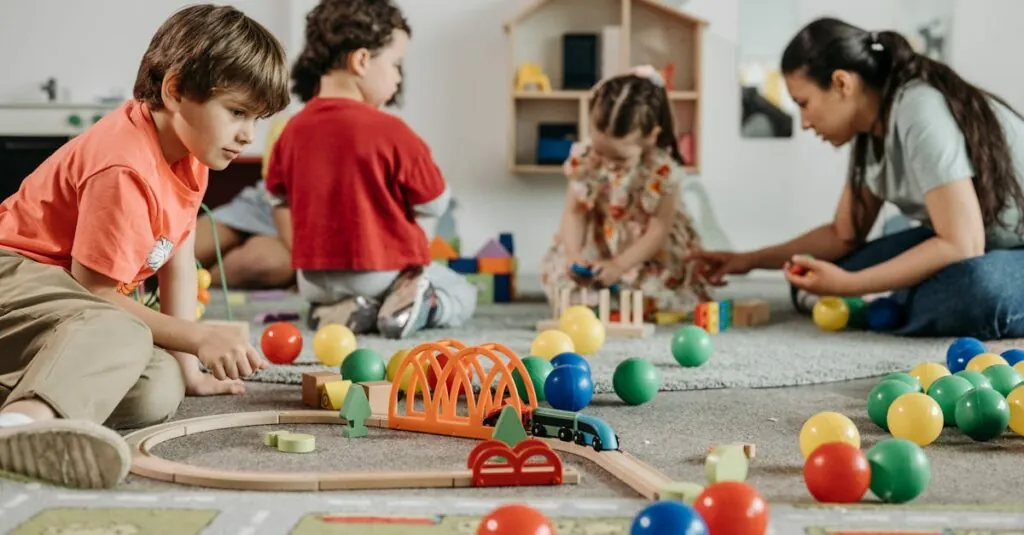Table of Contents
ToggleWhen it comes to preschoolers, keeping their attention can feel like herding cats. But fear not! Engaging educational activities can turn that chaotic energy into a fun learning experience. Imagine transforming your living room into a mini classroom where little minds explore, discover, and giggle their way through lessons.
Benefits of Educational Activities for Preschoolers
Educational activities offer numerous advantages for preschoolers, supporting their overall growth and development. Engaging in such activities fosters a rich learning experience that nurtures various skills.
Cognitive Development
Cognitive development in preschoolers greatly benefits from educational activities. Activities like puzzles and matching games stimulate critical thinking. Engaging with numbers and letters in a playful manner helps enhance basic math and literacy skills. Children absorb new concepts through hands-on experiences, making learning memorable. Furthermore, these activities often encourage problem-solving skills. Children learn to navigate challenges while exploring new ideas, which builds confidence in their abilities.
Social Skills Improvement
Social skills improvement emerges as preschoolers interact with peers during educational activities. Group games and collaborative projects teach communication and teamwork. Children develop empathy as they share and take turns with classmates. Engaging in structured play fosters respect for others and promotes a sense of community. These interactions also enhance conflict resolution abilities, preparing children for future social situations. Ultimately, educational activities serve as a foundation for healthy relationships in later life.
Types of Educational Activities
Diverse educational activities engage preschoolers while fostering growth. These activities nurture essential skills and create enjoyable learning experiences.
Arts and Crafts
Arts and crafts encourage creativity in preschoolers. Engaging in projects like painting or collage-making enhances fine motor skills. Children express themselves through various materials, such as paper, paint, and clay. Participating in these activities promotes problem-solving abilities as they decide how to complete their projects. Social interactions occur when children collaborate on group art projects, enhancing communication skills. These hands-on experiences lay the groundwork for cognitive development by sparking imagination and critical thinking.
Interactive Games
Interactive games offer a lively method to reinforce learning concepts. Activities like counting games or memory matching enhance math and memory skills. Children learn cooperation while playing team-based games that require sharing and taking turns. Engaging with educational apps or board games further solidifies knowledge of letters and numbers in a fun environment. Participating in role-playing scenarios introduces vocabulary and improves language skills. These experiences create a dynamic learning atmosphere that stimulates excitement about education.
Incorporating Play into Learning
Incorporating play into learning creates engaging educational experiences for preschoolers. This approach not only captures their attention but also enhances their development.
Importance of Play-Based Learning
Play-based learning holds significant value in early childhood education. It fosters curiosity, encouraging children to explore their environment. Development occurs naturally through play, helping preschoolers acquire essential skills. This method enhances cognitive growth while making learning enjoyable. Cooperative play also cultivates social skills, such as sharing and communication with peers. Lastly, play-based learning nurtures creativity, allowing children to express themselves confidently.
Examples of Playful Educational Activities
Implementing playful educational activities makes learning fun and interactive. Art projects, such as finger painting, stimulate fine motor skills and allow self-expression. Construction games, like building blocks, promote problem-solving and spatial awareness. Role-playing scenarios help enhance language skills while encouraging cooperation among children. Storytelling through puppetry entertains while improving comprehension and imagination. Outdoor exploration activities, like scavenger hunts, provide a lively way to learn about nature and science.
Resources for Parents and Educators
Parents and educators can access a variety of resources to enhance educational activities for preschoolers. Utilizing these tools can significantly enrich learning experiences.
Books and Apps
Books provide an engaging way to introduce concepts to preschoolers. Titles like “Chicka Chicka Boom Boom” and “The Very Hungry Caterpillar” teach letters and numbers through fun narratives. Apps such as Endless Alphabet and Montessori Numbers engage young learners with interactive experiences. Utilizing colorful illustrations grabs children’s attention, making learning feel enjoyable. Incorporating reading and apps into daily routines enhances skill acquisition, which fosters a love for learning.
Online Platforms and Websites
Numerous online platforms support preschool education with valuable resources. Websites like Starfall and ABCmouse offer interactive lessons that cover various subjects, ensuring diverse learning opportunities. Videos from PBS Kids and educational games on Sesame Street stimulate curiosity while reinforcing concepts. Additionally, platforms like Teachers Pay Teachers provide downloadable activities created by educators. These resources enable parents to facilitate engaging lessons at home. Access to such platforms ensures that children receive a well-rounded educational experience that caters to their developmental needs.
Engaging preschoolers through educational activities is essential for their growth and development. By integrating play into learning, children not only acquire important skills but also enjoy the process. This playful approach fosters curiosity and creativity while building social connections among peers.
Parents and educators have a wealth of resources at their fingertips to enhance these experiences. From interactive games to creative arts and crafts, the possibilities are endless. Embracing these educational activities can transform any environment into a vibrant learning space, setting the stage for lifelong learning and confidence in young children.







